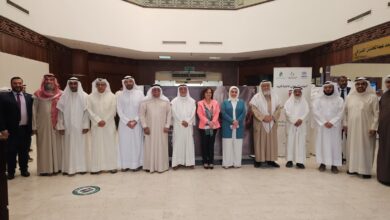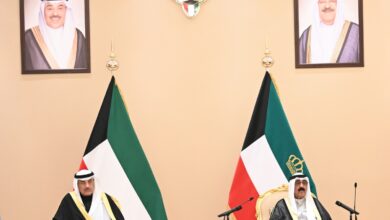
A delegation from the Organization of Arab Petroleum Exporting Countries (OAPEC), led by the organization’s Secretary-General, Engineer Jamal Issa Al-Loughani, participated in the Seventh Egypt International Energy Conference and Exhibition (EGYPS 2024), held under the auspices of President Abdel Fattah El-Sisi from February 19 to 21, 2024.
The event, themed “Energy Stimulus: Securing Supplies and Energy Transformation” with a focus on emissions reduction, gathered significant figures from the Arab, regional, and international energy sectors, reports Al-Rai daily.
This year’s conference, transitioning from a traditional petroleum-focused event to a comprehensive energy platform, addressed various challenges and solutions concerning energy transformations and emissions reduction. It witnessed robust participation from ministers, officials, secretaries of regional and international energy organizations, and CEOs of major energy companies.
Secretary-General Al-Loughani contributed as a keynote speaker in a strategic dialogue session held on February 19 under the theme “Securing Sustainable and Affordable Energy for All.” The session gained importance amidst growing geopolitical concerns and constraints, with many developing countries still facing challenges in accessing safe and affordable energy.
Al-Loughani emphasized the significant capabilities and abundant resources of OAPEC member states, positioning them to play a pivotal role in future energy transformations. He highlighted that OAPEC countries hold 54% of the world’s proven oil reserves and 26% of gas reserves, contributing substantially to global oil and gas production. Moreover, he noted the increasing focus on renewable energy sources such as solar, wind, and nuclear energy among OAPEC member states.
Citing recent OPEC forecasts, Al-Loughani projected a 23% increase in global energy demand, with renewable energy sources expected to rise significantly by 2045. However, he emphasized that oil and gas will remain primary energy sources, constituting 53.7% of the energy mix in 2045.
Discussing OAPEC’s role in energy transitions, Al-Loughani highlighted member states’ commitment to maintaining energy security, reducing emissions, and investing in both fossil fuels and renewable energy. He cited examples of member states like Kuwait, Iraq, the UAE, Saudi Arabia, and Qatar, outlining their plans to expand production capacities and invest in clean technologies.
Al-Loughani stressed OAPEC’s belief that oil and gas production, coupled with clean technologies, can lead to net zero emissions by 2050, underscoring the organization’s dedication to promoting sustainable energy systems and contributing to global efforts in combating climate change.













